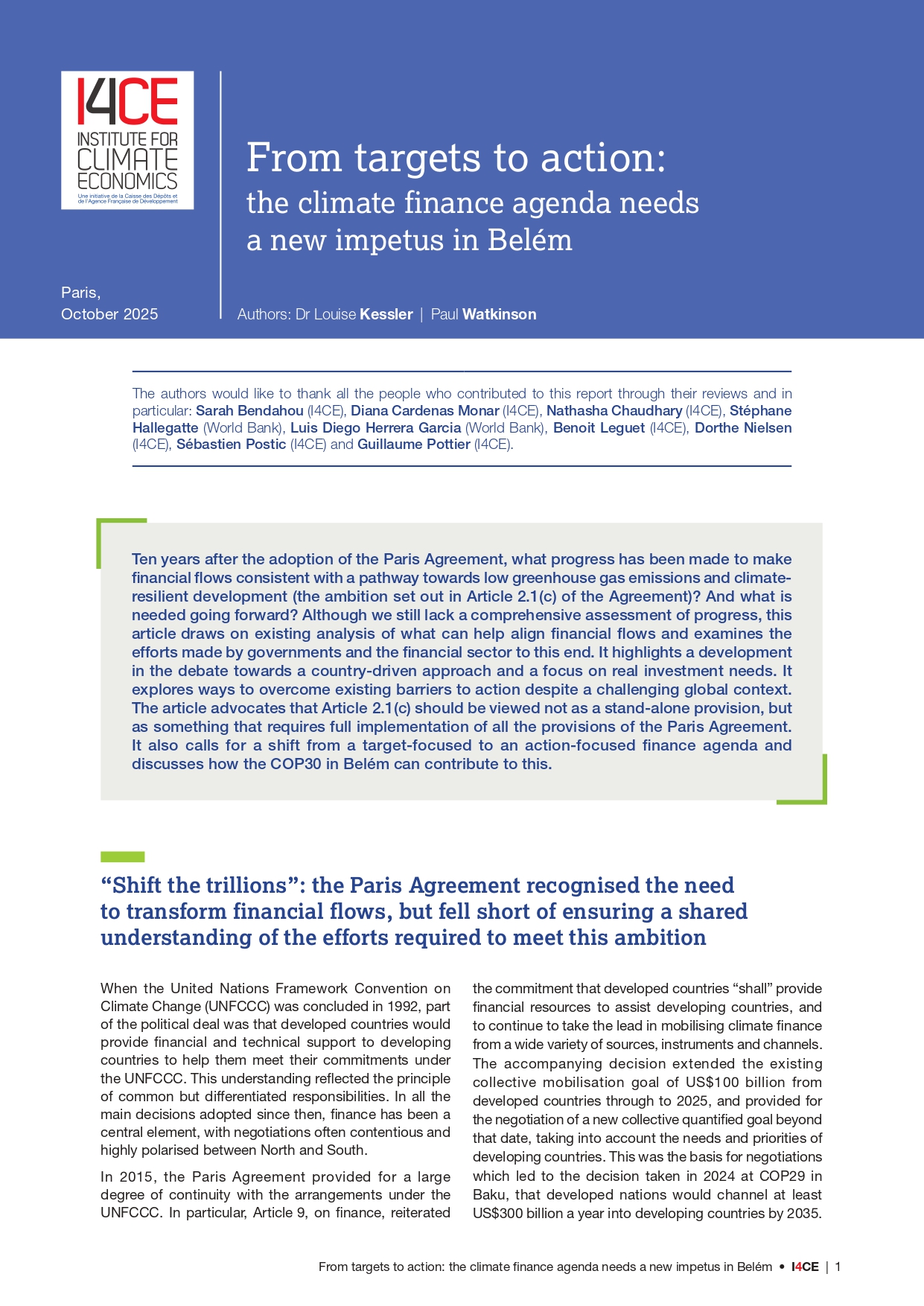From targets to action: the climate finance agenda needs a new impetus in Belèm
Ten years after the adoption of the Paris Agreement, what progress has been made to make financial flows consistent with a pathway towards low greenhouse gas emissions and climate-resilient development (the ambition set out in Article 2.1(c) of the Agreement)? And what is needed going forward? Although we still lack a comprehensive assessment of progress, this article draws on existing analysis of what can help align financial flows and examines the efforts made by governments and the financial sector to this end. It highlights a development in the debate towards a country-driven approach and a focus on real investment needs. It explores ways to overcome existing barriers to action despite a challenging global context. The article advocates that Article 2.1(c) should be viewed not as a stand-alone provision, but as something that requires full implementation of all the provisions of the Paris Agreement. It also calls for a shift from a target-focused to an action-focused finance agenda and discusses how the COP30 in Belém can contribute to this.
Table of contents
-
“Shift the trillions”: the Paris Agreement recognised the need to transform financial flows, but fell short of ensuring a shared understanding of the efforts required to meet this ambition
-
Over the past ten years, governments and the financial sector have undertaken efforts to improve the consistency of finance flows with climate change mitigation and adaptation targets
-
Although there is no comprehensive assessment of the progress made on Article 2.1(c), the alignment of financial flows with mitigation and adaptation targets clearly remains limited
-
The transformation of the global financial sector has not kept pace with the work undertaken by countries to develop their low‑emissions and climate–resilient pathways
-
The delivery of climate finance is evolving towards a country–driven approach focused on real investment needs
-
The debate on climate finance has been significantly reshaped, especially as regards sources of finance
-
Despite a challenging global context, there is room for manoeuvre, both domestically and internationally, to overcome current barriers to action
-
COP30 offers the opportunity to shift the global perspective from targets to delivery and action

